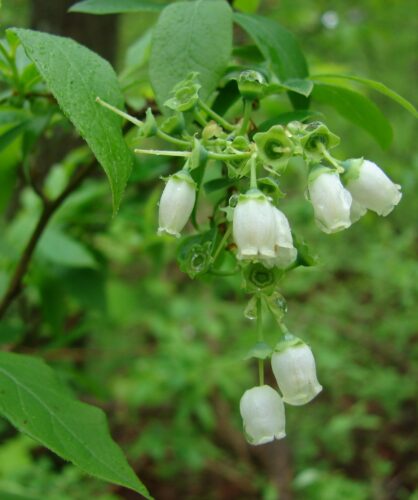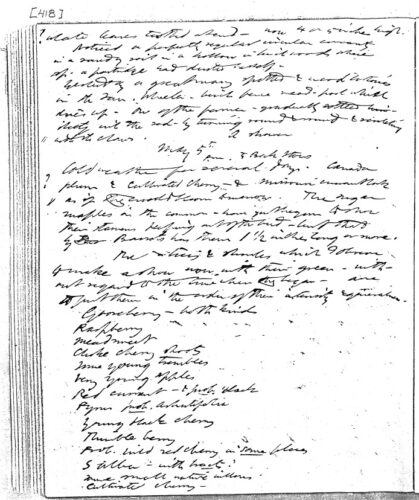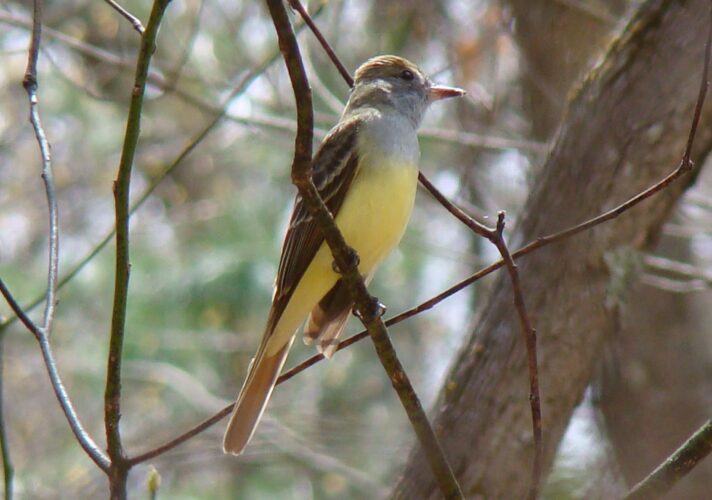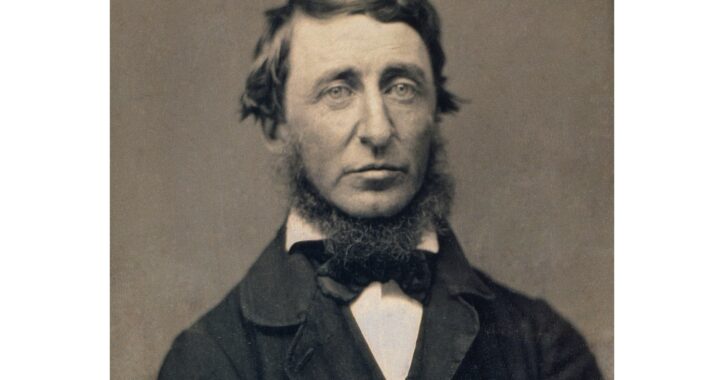Spring is coming earlier than it did in the nineteenth century, a scientific study has found. One of the indicators of spring is the blossoming of trees and flowers. Author, naturalist, and philosopher Henry David Thoreau was deeply interested in the unfolding of the seasons. On his daily walks in Concord, Massachusetts, he took notes whenever he observed such seasonal changes. He wrote in his journal “I often visited a particular plant four or five miles distant, half a dozen times within a fortnight [2 weeks], that I might know exactly when it opened.” An entry on May 5, 1855, notes “High blueberry beg[in] to leaf in some places yesterday.”

Highbush blueberry in bloom at the Colman Reservation Image credit: C Adler
Biologist Richard Primack has mined Thoreau’s journals for these observations and compared them with current data. In 2010, for example, highbush blueberry first flowered in Concord on April 7. Comparing 32 plants from Thoreau’s time to today, Primack found the first flowering dates were now occurring an average of 11 days earlier. According to a United Nations panel, human activity has caused average global temperatures to increase 1.0 degrees Celsius above pre-industrial levels. In Concord, a suburb of Boston, the increase has been at least 2.0 degrees Celsius because of the “heat island” effect of dense development, pavement, and energy use compared to rural areas. Plants are responding to this warming by blooming earlier.

A page from Thoreau’s Journal, May 5, 1855

Birds that migrate long distances, such as this Great Crested Flycatcher, have not adjusted their schedules to stay in sync with the earlier arrival of spring in Massachusetts. Image credit: C Adler
In recent studies, Primack has found evidence that insect populations shift their schedules in sync with the plants they feed on, which is not surprising. However, the arrival of birds who winter in the tropics has not, on average, shown much of a shift. As a result, one of the consequences of climate change may be a mismatch between bird populations and the availability of the insects they feed on. In 1852, Thoreau voiced a similar awareness of the importance of climate in the circle of life, noting that an unusually long winter could have deadly consequences for returning birds. But he did not foresee the steady retreat of winter that we now face.

